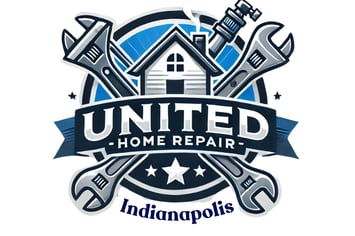Hiring the Right Handyman: Why Cheap Isn't Always Better
9/9/20244 min read


The Importance of Adequate Insurance for Handymen
When hiring a handyman, ensuring they have adequate insurance is paramount. Insurance coverage is not just a bureaucratic formality; it provides a safety net for both the handyman and the homeowner. Unfortunately, many people overlook this critical aspect in a bid to save money, only to face potentially exorbitant expenses if something goes wrong.
One of the primary types of insurance a reputable handyman should possess is liability insurance. Liability insurance covers any accidental damage the handyman might cause to your property while performing their work. For instance, if a handyman accidentally damages a wall or breaks a window, liability insurance ensures those repairs are covered without any cost outlay from the homeowner. Without this coverage, homeowners may find themselves footing the bill for such damages, which can be a significant financial burden.
In addition to liability insurance, workers' compensation is another crucial coverage to look for. Workers' compensation insurance protects homeowners in the event that the handyman is injured while working on their property. If a handyman without workers' compensation gets hurt, the homeowner might be held financially responsible for medical expenses and lost wages. This situation can lead to severe financial pressures and legal complications. With workers' compensation, these costs are covered by the handyman's insurance, offering peace of mind to the homeowner.
It's also advisable to ask about the handyman's general insurance policy limits. Higher policy limits generally indicate better coverage, ensuring that more significant or multiple incidents will be covered. Not only does this protect the homeowner financially, but it also reflects the professionalism and reliability of the handyman. Adequate insurance signifies that the handyman takes their business seriously and is prepared for unforeseen circumstances, which is essential for building trust and maintaining a good reputation.
In the quest to find the right handyman, the importance of proper insurance cannot be overstated. Homeowners who prioritize hiring adequately insured handymen are not only protecting their property but also safeguarding their financial stability against unexpected mishaps.
Why Cheap Isn't Always Better: Risks of Hiring Low-Cost Handymen
When faced with household repairs or improvements, many homeowners might feel the impulse to hire the most affordable handyman available. However, opting for a low-cost handyman can often lead to unforeseen complications that outweigh the initial savings. One significant risk is the potential for substandard workmanship. Inexperienced handymen or those offering bargain rates might lack the necessary skills to execute tasks properly, potentially leading to poorly done work that may require additional repairs.
Another critical concern is the use of inferior materials. Low-cost handymen may rely on cheaper, substandard materials to keep their rates competitive. While this may lower the upfront cost, it elevates the risk of repairs failing prematurely, which can incur higher expenses in the long run. For instance, using low-quality plumbing fixtures could result in leaks or bursts, exacerbating the original problem and necessitating extensive repairs.
In addition, hiring an inexperienced handyman increases the possibility of further damages. Poor execution or lack of proper techniques can turn a minor repair into a significant issue. In some cases, what may have initially been a quick fix could evolve into an urgent and more expensive repair project due to shoddy workmanship. Issues such as improper wiring or incorrect installation of appliances are not just costly but can also pose severe safety risks, including fire hazards and electrical failures.
Therefore, it's imperative to check the credentials of any handyman before hiring. Verifying licenses and certifications is crucial to ensure that the individual or company is qualified for the job. Licensed professionals are generally subject to strict industry standards and regulations, making them a safer and more reliable option. Certifications can also attest to a handyman's expertise and commitment to delivering quality work.
Ultimately, while it may appear that hiring a low-cost handyman saves money initially, the potential risks and additional costs associated with poor workmanship, inferior materials, and the need for further repairs can negate those savings. Ensuring that the handyman is licensed and certified is essential for maintaining the value, safety, and longevity of your home investments.
Finding a Reliable and Qualified Handyman: Tips for Homeowners
When faced with home improvement tasks or repairs, hiring a reliable and qualified handyman is crucial to ensure quality workmanship and efficiency. To achieve this, homeowners should follow a series of practical steps designed to streamline the search process and minimize risks.
First and foremost, asking for recommendations from friends, family, or neighbors can be invaluable. Personal referrals usually provide trustworthy insights into the handyman's reliability and skill level. Additionally, homeowners should read online reviews on platforms like Yelp, Google, and other community forums to get a broader perspective. These reviews can reveal both the strengths and weaknesses of potential candidates.
After gathering recommendations and reviews, conducting thorough interviews with shortlisted candidates is essential. During these interviews, it's important to ask specific questions regarding their experience and past projects to gauge whether their expertise aligns with the tasks at hand. Verifying their availability is equally important to ensure that their schedules can accommodate the homeowner’s timelines. Additionally, evaluating a handyman's professional demeanor helps in selecting someone who communicates effectively and maintains a respectful attitude.
Another critical aspect is obtaining written estimates from multiple handymen. Detailed estimates help homeowners compare pricing and assess whether they align with the scope of work promised. It's advised to scrutinize these estimates to identify any discrepancies that might indicate hidden costs or compromises in quality. Comparing estimates enables homeowners to make balanced decisions based on value rather than just the lowest price.
The vetting process shouldn't stop at interviews and estimates. Homeowners should also verify credentials such as licenses, insurance, and certifications to ensure compliance with local regulations and safeguard against potential liabilities. Asking for references from previous clients can also provide additional assurance of the handyman’s track record and customer satisfaction.
Taking these steps not only helps in finding a dependable and skilled handyman but also safeguards against common pitfalls associated with hiring individuals based solely on low rates. It promotes a balanced decision-making approach, ensuring that cost does not compromise the quality and reliability of work.


